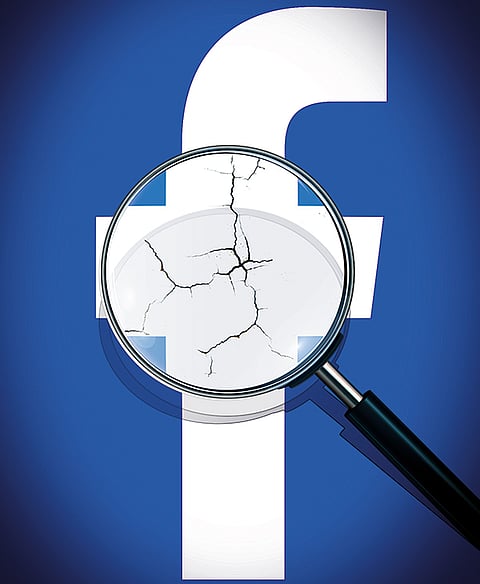Social media must be held to account
No one should profit from wilful spreading of misinformation

The prospect of a company losing more than a quarter of its share value overnight would be the stuff of nightmares for any board. But Meta — the new corporate entity formerly widely known as Facebook that owns the social media platform of that name along with Instagram and the messaging app WhatsApp — did indeed lose more than $230 billion (Dh845 billion) in one day.
Indeed, the individual personal worth of Facebook founder Mark Zuckerberg took a $30 billion hit during the bloodbath on Wall Street, part of a sell off that has hit a broad range of technology stocks since the start of January.
But the sell-off of Meta stock is not just negatively affected by the downward sentiment hitting the market as the US Fed takes action to counter inflationary measures.
There is another far-reaching factor at play when it comes to Meta — one that seems to suggest that many users and investors are reassessing the impact of the conglomerate’s platforms and their effect on the way we communicate with each other — and share news and opinions.
While traditional media companies that publish news are held to a very high legal threshold, with strict regulatory oversight and severe punitive consequences for wilfully misleading, debasing, libeling or slandering persons or legal entities — those same high standards simply do not apply when it comes to social media.
This lack of oversight and absence of legal remedy has meant that since their growth, social media platforms have profited by the proliferation and promulgation of half-truths, half-baked theories, hate and error. Social media companies with their multinational structures use loopholes to shun their moral responsibilities.
Spotify, while not part of the Metaverse, has taken little action over anti-vaccine misinformation being spread on some of its podcasts, with artists such as Neil Young and Joan Baez being forced to take their music off the site as a result. Anti vax misinformation is still abound on social media, putting lives at risk.
In political terms, the alternative truth that suggests that the US presidential election was stolen, is undermining American institutions, and is being propagated in the unregulated field of social media.
It’s high time that Meta and others were held to the same strict standards as all media companies that are responsible for their printed and broadcast content. No one should be allowed to profit from misinformation.



